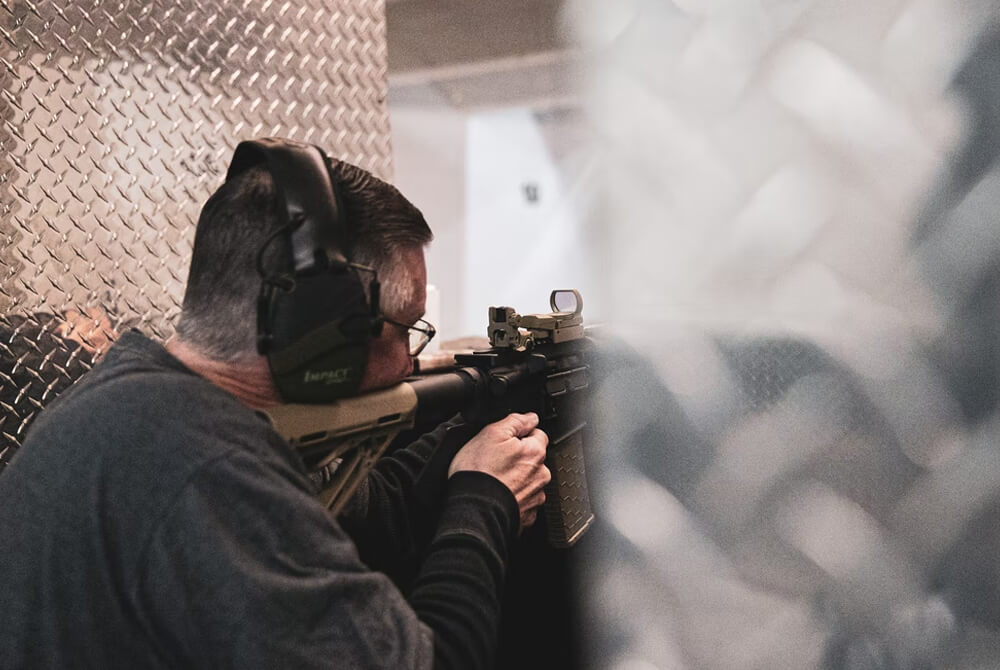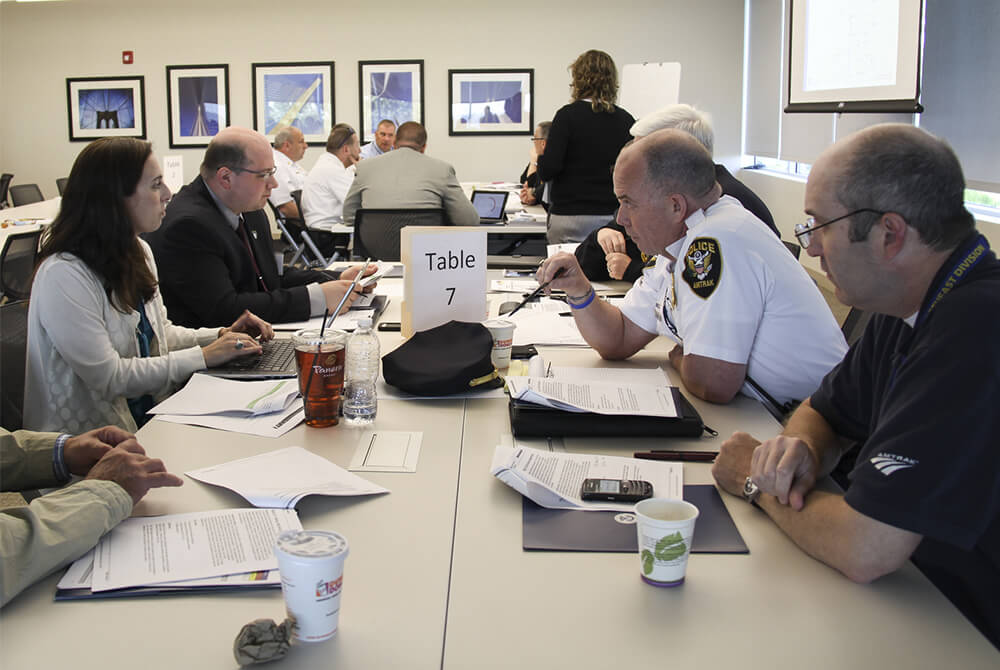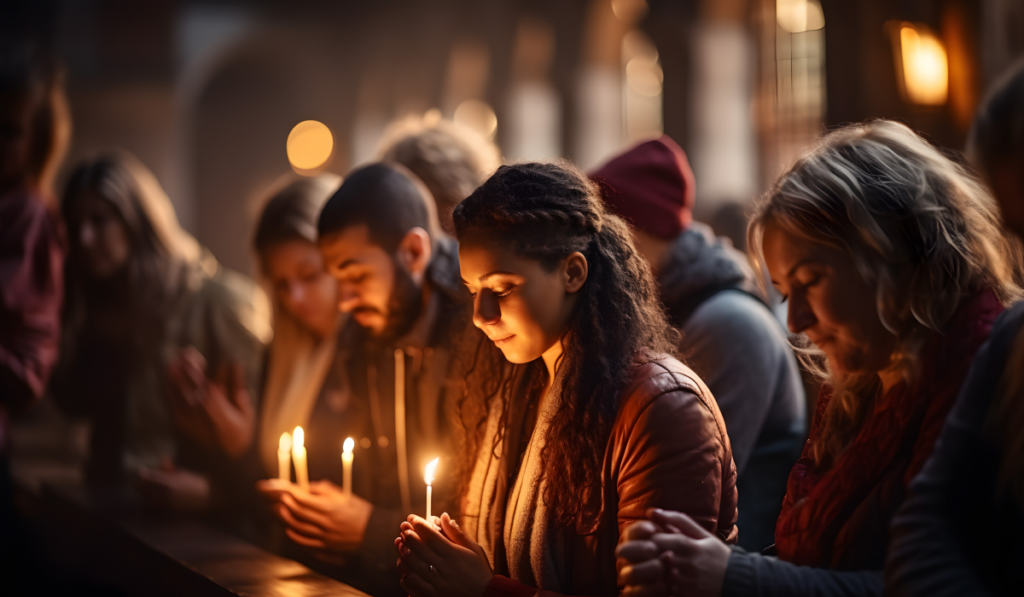
How to Operate an Armed Church Security Team
Experts expect terrorism in the United States to increase in the coming years. For many congregation leaders, this raises the concern of whether an armed church security team is appropriate. Unfortunately, it’s not just terrorism that makes these teams useful. Domestic incidents that don’t involve most parishioners can still put their lives in danger.
In reality, the decision to start and operate an armed security team at your church is best made by ministry leaders. As many Bible verses on leadership tell us, though, God’s faithful servants have a responsibility to protect their flock. If someone walks into your parish with intent to cause harm, your ability to live up to this duty could diminish without a security team.
Do I Need an Armed Church Security Team?
When we hear of violence or terrorism in the news, it’s easy to think that an armed security team could benefit houses of worship. Many people who consider going this route, however, find comfort in the fact that attacks on churches are rare. After all, how many of us have gone to ministries where mass casualty incidents have occurred?
While that line of reasoning is logical, it also carries a level of danger with it. Look back at the many mass casualty events that have occurred in recent years. Do you think any of the victims anticipated an attack that day? The answer is obviously “no.” When such situations occur, being overly prepared always beats a lack of preparation.
Unfortunately, statistics also show an increased need for armed church security teams:
- Nearly 9,500 Christian buildings and churches were attacked across the globe in 2019.
- Between 2018 and 2019, there was a 1,000 percent increase in global church attacks.
- Nearly 3,000 Christians were killed around the globe for their faith in 2019.
- Recent years showed 250 attacks happen yearly at houses of worship.
These statistics shouldn’t stop someone from going to church. Even with a clear increase in attacks at worship services, attending services on Sunday remains one of the safest things you can do. And though the fear of terrorism may be high – especially after high-profile events – robberies, domestic disputes and personal conflicts account for most church violence.
Of course, this doesn’t negate the need for armed church security teams. Threats always exist. The U.S. saw an increase, for instance, in mental illness during the COVID-19 pandemic. These psychiatric disorders are another significant cause of church shootings. The motivation behind these attacks, however, is far less important than their outcomes.
The fact is that your ministry is unlikely to ever experience a significant act of violence. If you one day fall into this unlucky category, though, you’ll wish you had a security team in place.
https://donorwerx.com/resources/best-fundraiser-ideas-for-churches/
Understand Laws on Armed Church Security Teams
If you’ve decided that an armed security team in your church is appropriate, one of the easiest steps to take involves checking local laws. While this is a simple process for the majority of ministry leaders, it’s one of the most important that you’ll undertake. It’s vital that you don’t put yourself or your parishioners at legal risk in the name of security.
While many states have enacted laws that allow firearms in houses of worship – essentially legalizing church security teams – this isn’t the case everywhere. Fortunately, areas that outlaw concealed carry in houses of worship typically allow armed church security teams in certain conditions. If you hit a wall while doing research, consider some of these options:
- Reach out to local law enforcement agencies.
- Inquire with a local attorney or one within the ministry.
- Contact larger area ministries – they have likely looked into this.
- Ask a congregant who’s well-versed in local gun laws.
There’s usually at least one way to start an armed security team within the confines of the law. Some areas may require that you set up a separate legal entity for the team, but the good news is that where there’s a will, there’s typically a way. Make sure you understand all the legal issues that go into creating an armed church security team before taking further steps.
How to Form a Church Security Team
Once you know you’re on solid legal grounding, forming an armed church security team is the next step. You will definitely need response plans in place, but when just starting out, you must start with your base team. In some areas, more people in a congregation may own guns than not. This doesn’t necessarily mean, however, that they’re ideal for your security team.
Consider whether any of the following individuals worship in your congregation:
- Veterans.
- Police officers.
- Hunters.
- Security guards.
- Competition shooters.
These individuals have more experience in shooting or security than the average person. While this doesn’t always mean they’re ready to join an armed church security team – especially in the case of the latter three – it does mean they’re ahead of the curve. Even though these folks are ideal candidates, you also shouldn’t shy away from making a ministry-wide announcement.
Depending on the demographics of your church’s locale, an email shout asking who wants to be part of the security team could get a ton of responses. Always keep in mind, though, that enthusiasm isn’t always the sign of a good security member. You want people who are experienced and trained. If this requirement results in few candidates, consider getting training for the core group.
The following are all great ways to get necessary training:
- Local citizen firearms classes.
- Citizen’s police academies.
- NRA training courses.
- Tactical firearms classes.
- Law enforcement firearms classes.
While it may seem tempting to just choose a few parishioners and tell them to “come packing,” this doesn’t equate to an effective armed church security team. Even experienced shooters may not know how to respond in emergency situations, and unfortunately, that’s really the only time the need for response exists. If you’re going to have an armed security team, training is essential.
If you can’t get proper training or there isn’t enough interest, don’t take any shame in admitting that. Countless churches across the nation simply hire off-duty officers or private security teams for their services. Police officers are likely your most affordable option. Some capital cities allow them to work special duty for only $35 an hour.
https://donorwerx.com/resources/church-security-plan-10-easy-ways-to-create-a-safer-church-this-sunday/
Conduct a Risk Assessment
When pastors write their church sermons for the week, they plan out everything well in advance. You should apply this same thinking to your armed church security team. Proper firearms training for your selected members is important, but you should also have an emergency response plan in place. This starts with conducting a risk assessment.
Risk assessments are invaluable tools among emergency managers. They allow you to identify potential threats, rank the risk factor involved, and properly prepare based on that risk. Your assessment should include the following steps:
- 1. Identify hazards: Detailed emergency management plans involve identification of all risks. For churches, this could be fires, terrorism, utility outages, workplace violence or mass shooters. For your armed church security team, consider hazards such as single-exit buildings, areas that allow undetected approach, and ease of access from populated areas.
- 2. Identify endangered assets: Anything from property to computer systems could be at-risk assets when conducting a full assessment. When focusing on potential violence in the church, though, these “assets” are your people. Is there a children’s or elder ministry? How will you protect everyone in different parts of your church?
- 3. Impact analysis: When conducting a full risk assessment that includes various hazards, the impact analysis for potential violence will be “human casualties.” By focusing on potential violence, you can consider the impact specific hazards. Could that undetected approach you identified allow an unknown suspect to enter before anyone will notice?
This risk assessment will show you potential hazards and allow you to identify the biggest risks. Use this in your emergency plan. A full emergency plan is outside the scope of this guide, but the Church Mutual insurance company created a full active shooter action plan that congregations can implement. Your armed church security team should review this.
You’ll also want to conduct tabletop exercises where team members verbally go over hypothetical situations and how they would respond. These provide an impressive level of training, but nothing can replace the value of live drills. Have your armed church security team gather periodically for drills involving fake guns and crisis actors.
When finished with these exercises, create an After Action Report (AAR) on what went right and what your team could improve. Your church creates an impact report for financial purposes every year, so why wouldn’t you take the same step when protecting your congregants?
https://donorwerx.com/leadership-development/why-churches-need-to-invest-in-their-church-leadership/
Honor Your Duty to Safeguard Your Flock
No one can claim to know what’s right for your church. Many religions and denominations renounce the idea of guns inside the ministry. There is no shame in this belief, but this doesn’t diminish the need for some type of protection for congregants. If you feel that an armed church security team is the best way to accomplish this goal, you are far from alone.
If you go this route, though, safety should be your top priority. Your congregants will probably face more risk from an untrained security guard than they ever will from a church shooter. Keep this in mind when planning, building and operating your team.




